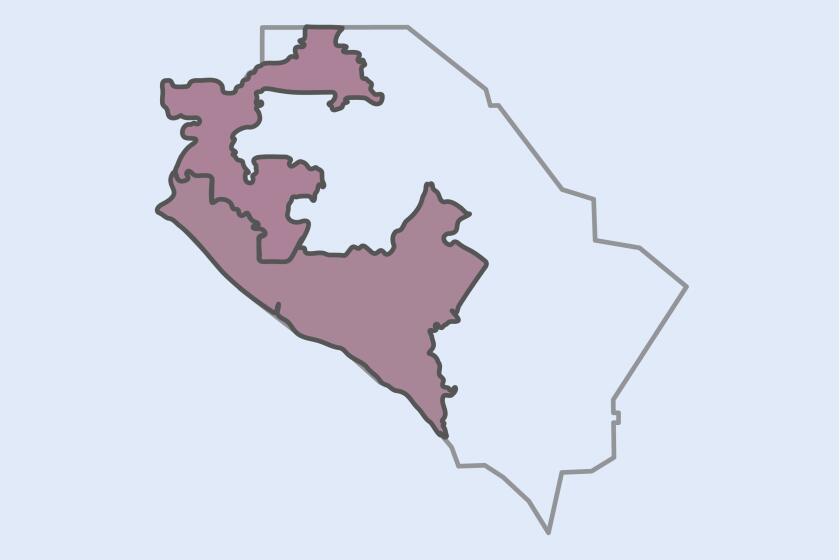Bush Plans June Visit to Mideast, Paper Says
WASHINGTON — President Bush will visit the Middle East in June to meet Israeli and Palestinian leaders and try to advance a plan to create two side-by-side states, according to news reports Sunday.
Bush will meet with Israeli Prime Minister Ariel Sharon and the new Palestinian prime minister, Mahmoud Abbas, in Egypt, the Israeli newspaper Haaretz reported on its Web site. The White House refused to confirm or deny the report, although discussion of a Middle East trip has been circulating in Washington for some time.
On Friday, Bush said he was exploring whether to meet with Abbas and Sharon.
“If a meeting advances progress toward two states living side by side in peace, I will strongly consider such a meeting,” he said. “It’s going to be difficult to achieve peace, but I believe it can happen.”
“Nothing is final until it’s announced,” White House spokesman Scott McClellan said Sunday. “I would expect we’ll have more to announce on the president’s schedule soon.”
Arab and European leaders and others have warned that the Palestinian conflict and the perception that the United States is siding with Israel are feeding anti-American sentiment and terrorism.
“It’s about time,” Sen. Joseph I. Lieberman (D-Conn.) said on “Fox News Sunday.” “The Bush administration has been disengaged from the ground in the Middle East, and when that happens, nothing good will happen between the Israelis and the Palestinians. We’re indispensable there.” Still, how much a Bush visit could accomplish is an open question.
At the center of the new effort is an initiative known as the “road map.” It was hammered out by the United States, Russia, the United Nations and the European Union and presented to the Israelis and Palestinians. Although the two combatants have formally accepted it, they have yet to negotiate any of the crucial details, including Palestinian arrests of militants and Israeli freezes on Jewish settlements in the West Bank and Gaza Strip.
Dennis B. Ross, a former U.S. envoy to the Mideast, noted that the road map has “52 paragraphs, and [the two sides] interpret each paragraph differently.”
“It’s not a blueprint to peace,” Ross added. “It’s basically a point of departure for resuming talks and breaking the cycle of ongoing warfare.”
Ross said the success of a Bush trip would depend in large measure on how many concessions the U.S. will succeed in squeezing from each side before any negotiations begin -- and on whether a top-level presidential envoy will stay behind to keep the peace process moving.
More to Read
Get the L.A. Times Politics newsletter
Deeply reported insights into legislation, politics and policy from Sacramento, Washington and beyond. In your inbox three times per week.
You may occasionally receive promotional content from the Los Angeles Times.










